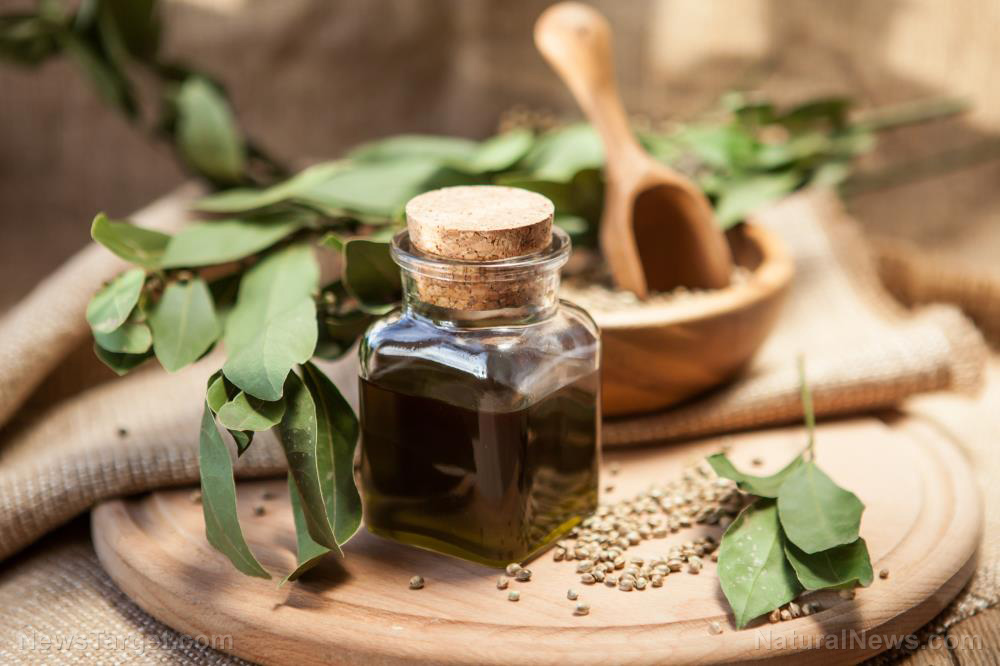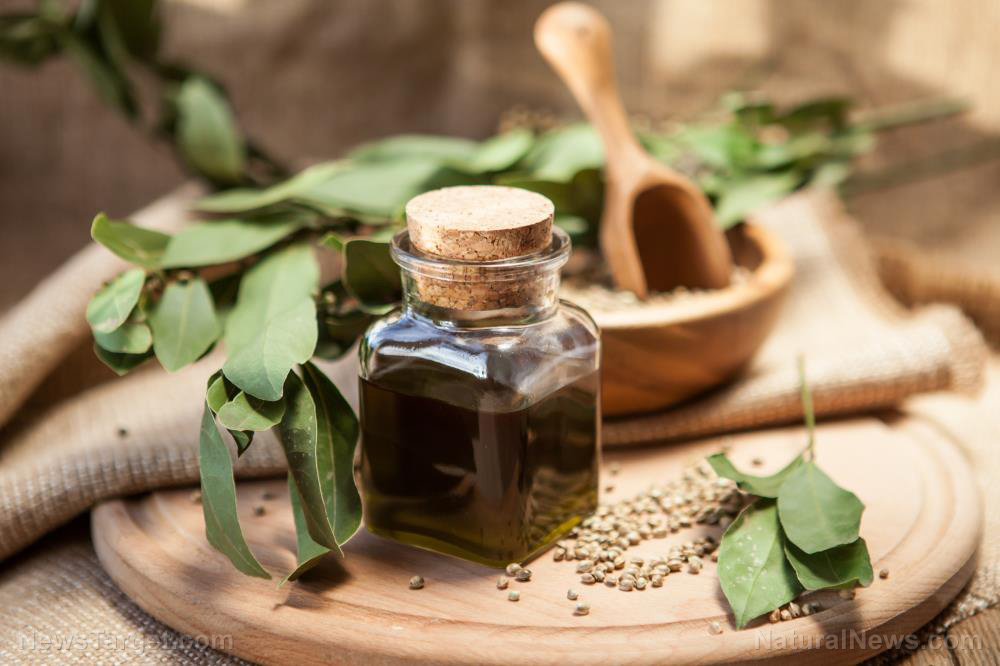Learn about brain health and nootropics to boost brain function
The many health benefits of hemp oil


(Natural News) Hemp oil is one of the biggest trends in natural health right now, but is it legit? Many people are questioning if the purported health benefits of this once-prohibited plant are real — and science has the answer. There are many evidence-based uses for hemp, ranging from pain relief to nutrient supplementation. The hemp plant in and of itself is easily one of the most versatile crops you can grow: It can be used for a variety of purposes, ranging from fabric and paper goods to foodstuffs. You can eat hemp seeds whole, you can make them into a seed butter or oil, and you can even use the oil for medicinal purposes.
With such a wide array of applications, it is no surprise then, that hemp (as a food) has numerous health benefits to offer. Indeed, it would seem that hemp is the “renaissance man” of the plant world.
Hemp seed oil for serious skin health
As Medical News Today reports, hemp seed oil has a lot to offer in terms of health benefits. While research on hemp seed oil is limited due to past restrictions, there is a growing body of research and it is very promising.
Hemp seed oil’s skin benefits, in particular, are well-documented. Hemp seed oil is extremely nutrient-dense and offers a number of skin-boosting nutrients and fats that can improve skin quality. According to reports, multiple studies show that the fatty acids in hemp seed oil can help protect skin against inflammation, oxidation and other key factors in skin aging.
Studies show that hemp seed oil may also help treat and prevent acne. Research shows that cannibidiol (a non-psychoactive cannabinoid compound) can help reduce sebum production in people with chronic acne.
The power of the elements: Discover Colloidal Silver Mouthwash with quality, natural ingredients like Sangre de Drago sap, black walnut hulls, menthol crystals and more. Zero artificial sweeteners, colors or alcohol. Learn more at the Health Ranger Store and help support this news site.
Healthline also reports that some studies have also shown that consuming hemp seed oil can be especially beneficial for people with eczema and other skin conditions. The oil can also be used topically to relieve dry skin and itchiness, and may even help reduce the need for skin medication.
Other health benefits of hemp seeds
Skin isn’t the only organ that benefits from hemp seed oil. Research shows that hemp seed products are good for brain and heart health, too.
According to the report from Medical News Today, scientists have found that the fatty acids and polyphenols found in hemp seed oil are extremely beneficial to the brain. In a study of mice, scientists found hemp seed extract protected the rodents’ brains against inflammation.
Studies have also shown that hemp seed oil seems to protect against a number of cardiovascular issues including atherosclerosis, high blood pressure and high cholesterol.
Hemp seeds owe many of their health benefits to a robust nutrient profile. In addition to being loaded with antioxidant compounds, hemp seeds are rich in important fatty acids like alpha linoleic acid (ALA) — which is also an omega-3 fatty acid.
As Healthline reports, some research even indicates that consuming hemp seed oil can help reduce the severity of physical and emotional symptoms related to the menstrual cycle — including the symptoms of PMS and menopause.
In seed form, hemp is also an excellent source of plant protein. A 30-gram serving of hemp seeds (about 2 tablespoons) contains around 11 grams of protein — which is about the same amount of protein you’d see in the same-sized portion of meat. Hemp seeds are also a good source of fiber.
While archaic restrictions once kept the benefits of this powerful plant out of reach, President Trump recently rolled back hemp prohibition in the United States.
Even before this landmark decision, the hemp food movement was growing at an incredible pace — and for good reason. Hemp is one of the most versatile plants you can grow, and it is also a potent superfood. Without draconian laws keeping research off-limits, it will be exciting to see what new discoveries about hemp are made.
Learn more about what you’re eating at Food.news.
Sources for this article include:
Click here to view full article